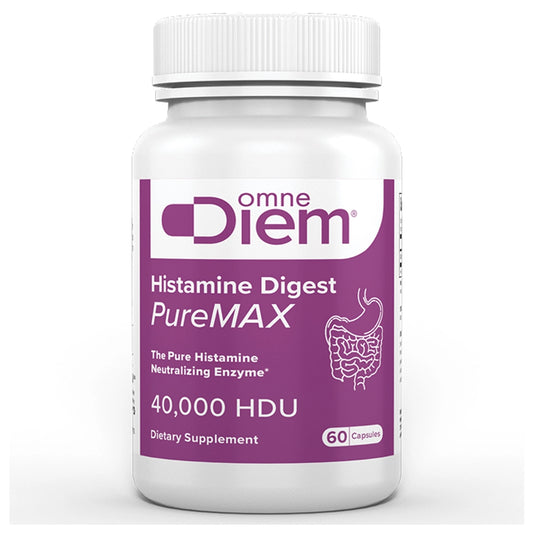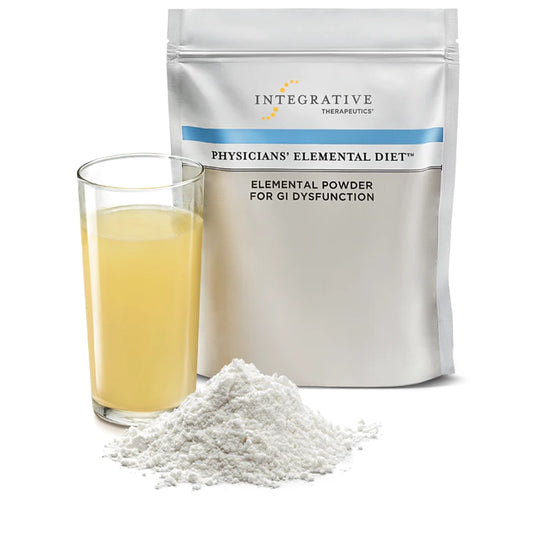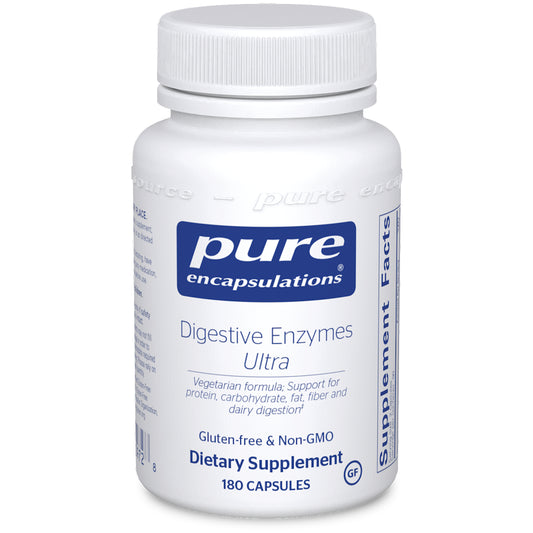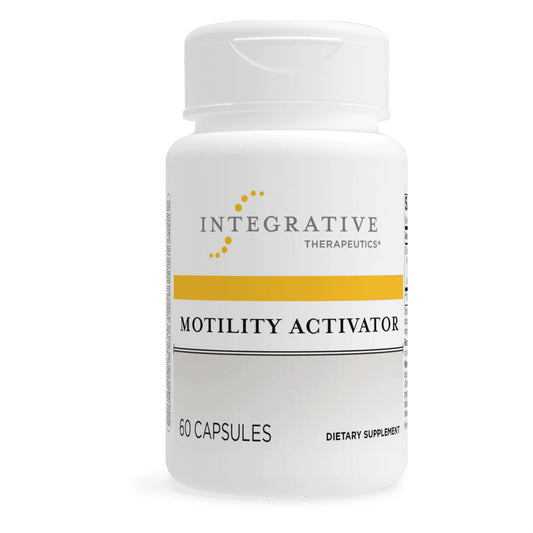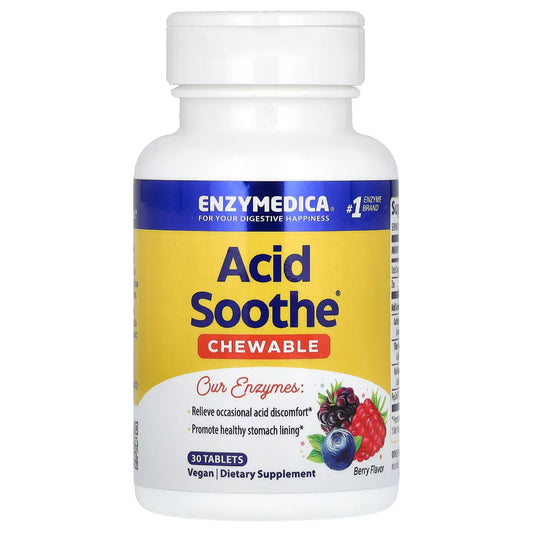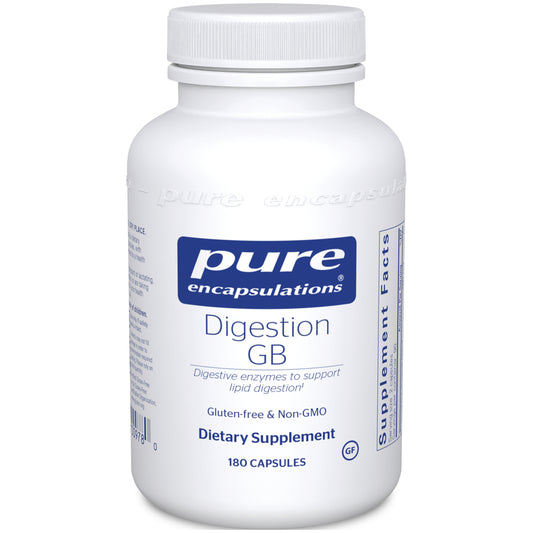-
ParaGuard Liquid
Vendor:Advanced Nutrition by ZahlerRegular price $49.95 USDRegular priceUnit price / per -
Omne Diem Histamine Digest
Vendor:DiemRegular price From $56.95 USDRegular priceUnit price / per -
Histamine Digest PureMax
Vendor:DiemRegular price $56.95 USDRegular priceUnit price / per$0.00 USDSale price $56.95 USDAvailability : In Stock -
Physicians Elemental Diet Powder
Vendor:Integrative TherapeuticsRegular price $125.00 USDRegular priceUnit price / per -
Pancreatic Enzyme Formula
Vendor:Pure EncapsulationsRegular price From $39.40 USDRegular priceUnit price / per -
Seeking Health Histamine Digest
Vendor:Seeking HealthRegular price From $37.99 USDRegular priceUnit price / per -
Digestive Enzymes Ultra
Vendor:Pure EncapsulationsRegular price From $36.20 USDRegular priceUnit price / per -
Leaky Gut Revive
Vendor:Amy Myers MDRegular price $54.97 USDRegular priceUnit price / per -
Motility Activator
Vendor:Integrative TherapeuticsRegular price $41.00 USDRegular priceUnit price / per -
Acid Soothe Chewable Berry
Vendor:EnzymedicaRegular price $13.49 USDRegular priceUnit price / per -
Kid's Digest
Vendor:EnzymedicaRegular price From $18.49 USDRegular priceUnit price / per -
Digestion GB
Vendor:Pure EncapsulationsRegular price From $35.00 USDRegular priceUnit price / per
Collection: Digestive Enzymes
Digestive enzymes are involved in the breakdown of fats, proteins, and carbohydrates and play a vital role in gut protection, food breakdown and nutrient absorption for optimal well-being. Enzymes expedite the breakdown process of the food we eat and increase our body's ability to extract more energy and nutrients by improving the digestive health of our body. When our body is deficient in these enzymes, nutrients are not absorbed properly. Common symptoms of digestive enzyme insufficiency include belly pain, bloating, diarrhea, acidity, weight loss, etc. Digestive enzyme supplements are beneficial for those who are suffering from gastrointestinal conditions and impaired digestion associated with age and illness.
Common causes of digestive enzyme deficiency in modern lifestyle
- Impaired secretion associated with dysfunction of digestive organs, mucosal disease, gastrointestinal surgery and nutritional deficiency.
- Poor eating habits, like inadequate chewing of food.
- An unhealthy eating schedule, like eating late.
- Excessive alcohol
- Increased consumption of processed food
- High meat consumption and minimal intake of enzyme-rich foods.
- Ageing
Benefits of digestive enzyme supplements
The main aim of digestive enzyme supplements is to facilitate the conversion of carbohydrates, proteins, sugar and fats to smaller units. The supplements with a combination of different enzymes may be helpful in assisting the digestive process and relieving gastrointestinal symptoms. Digestive enzyme supplementation is important for those with enzyme deficiency, leading to functional dyspepsia and GI disorder.
Some of the important benefits of digestive enzyme supplements are:
- Relieve leaky gut symptoms by reducing inflammation and irritation of the gut lining.
- Improve digestive health and relieve symptoms of flatulence, bloating, fullness and post-prandial distress.
- Increase nutrient absorption and maintain energy
- Relieve symptoms of acid reflux
- Useful in lactose intolerance. Lactase is effective for lactose intolerance symptoms.
- Used in Exocrine pancreatic insufficiency in chronic pancreatitis, pancreatic cancer, cystic fibrosis or diabetes
- Reduces symptoms of belching, dyspepsia, feeling of fullness, abdominal discomfort, heartburn and anorexia.
Recent studies on digestive supplements
- Digestive enzyme supplements relieve symptoms of functional dyspepsia when taken before lunch and dinner for two months. They also improve the quality of life in general and the quality of sleep in these patients.
- Probiotics are live microorganisms and improve gastrointestinal health by restoring and maintaining gut flora. Probiotics supplements are useful in managing abdominal pain, dysbiosis, dyspepsia, etc. Probiotics also prevent gut inflammation. A combination of digestive enzymes and probiotics relieves Gastrointestinal discomfort and indigestion and may even prevent IBS.
Frequently Asked Questions
Which Enzymes are involved in food digestion?
There are three major classes of enzymes found in the human digestive system:
- Proteases for protein break down into simple amino acids
- Lipases for fat breakdown into fatty acid chain
- Carbohydrates for carbohydrate breakdown into simple sugar
What is the role of enzymes in gut health?
Enzymes also play a vital role in gut health. Our gut houses trillions of bacteria from diverse communities known as the gut microbiome, which helps digest food compounds and also helps protect us from harmful bacteria, produce vitamins, regulate immune function, and promote healthy digestion. Due to enzyme insufficiency, conditions like lactose intolerance or celiac disease occur. It can also make you feel bloated or uncomfortable after eating certain foods or cause other digestive issues.
Why do we need Digestive enzyme supplements?
We need these supplements to support our digestive system and promote nutrient absorption, which may be impaired due to ageing or illness. These supplements are also helpful in lactose intolerance and pancreatic insufficiency.



